| Year | Image | Laureate | Discipline | City | Ref |
|---|
| 2025 | 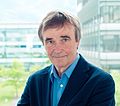 | Kai Simons (born 1938) | Biochemistry/cell biology | Dresden | [4] |
| 2024 |  | Roger S. Goody (born 1944) | Biochemistry | Dortmund | [5] |
| 2023 | | Jürgen Troe (born 1940) | Physical Chemistry | Göttingen | [6] |
| 2021 | | Rudolf K. Thauer (born 1939) | Microbiology/Immunology | Marburg | [7] |
| 2021 | | Werner Kühlbrandt (born 1951) | Biochemistry/Structural Biology | Frankfurt | [8] |
| 2019 |  | Klaus Müllen (born 1947) | Chemistry | Mainz | [9] |
| 2019 | | Walter Neupert (1939–2019) | Biochemistry and cell biology | Martinsried | [10] |
| 2017 | | Fritz Melchers (born 1936) | Cell biology | Berlin | [11] |
| 2017 | | Joachim Trümper (born 1933) | X-ray astronomy | Garching | [12] |
| 2015 | | Herbert Gleiter (born 1938) | Physics | Karlsruhe | [13] |
| 2015 |  | Otto Ludwig Lange (1927–2017) | Biology | Würzburg | [14] |
| 2013 | | Gunter S. Fischer (born 1943) | Chemistry | Halle | [15] |
| 2013 | 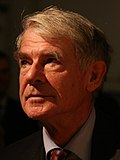 | Wolf Singer (born 1943) | Neurosciences | Frankfurt | [16] |
| 2011 |  | Bert Hölldobler (born 1936) | Zoology | Würzburg | [17] |
| 2011 | | Anna M. Wobus (born 1945) | Human genetics and molecular medicine | Gatersleben | [18] |
| 2011 | | Ulrich Wobus (born 1942) | Genetics/Molecular Biology | Gatersleben | |
| 2009 | | Karl Decker (1925–2024) | Biochemistry | | [19] |
| 2009 |  | Eduard Seidler (1929–2020) | History of medicine | | [15] |
| 2007 | | Klaus Wolff (1935–2019) | Dermatology | Vienna | [20] |
| 2007 | | Sigrid Doris Peyerimhoff (born 1937) | Physical chemistry | Bonn | [21] [22] |
| 2005 | | Hans Günter Schlegel (1924–2013) | Microbiology | Göttingen | [15] |
| 2005 |  | Alfred Gierer (born 1929) | Molecular biologist | | [15] |
| 2003 |  | Ernst J. M. Helmreich (1922–2017) | Biochemistry | Würzburg | [23] |
| 2003 | | Benno Parthier (1932–2019) | Cell biology | | [24] |
| 2003 | | Andreas Oksche (1926–2017) | Anatomy | Giessen | [25] |
| 2001 | 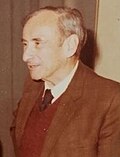 | Leopold Horner (1911–2005) | Chemistry | Mainz | [26] |
| 2001 | | Heinz Jagodzinski (1916–2012) | Physics | Munich | [27] |
| 2000 | | Hans Mohr (1930–2016) | Plant physiologist | Freiburg | [28] |
| 1999 | | Rudolf Rott (1926–2003) | Veterinary medicine | Giessen | [29] |
| 1999 | | Dorothea Kuhn (1923–2015) | History of science and medicine | Marbach | |
| 1997 | | Otto Braun-Falco (1922–2018) | Dermatology | Munich | [30] |
| 1997 |  | Friedrich Hirzebruch (1927–2012) | Mathematics | Bonn | [31] |
| 1995 | | Wilhelm Doerr (1914–1996) | Pathology | Heidelberg | [32] |
| 1995 | | Gottfried Möllenstedt (1912–1997) | Physics | Tübingen | |
| 1995 | | Dietrich Schneider (1919–2008) | Zoology | Starnberg | [33] |
| 1993 | | Wolfgang Gerok ( (1926–2021) | Internal Medicine | Freiburg | [34] |
| 1993 |  | Bernhard Hassenstein (1922–2016) | Zoologie | Freiburg | [35] |
| 1991 | | Heinz Röhrer (1905–1992) | Veterinary Medicine | Rathenow | [36] |
| 1991 |  | Albert Eschenmoser (1925–2023) | Chemistry | Küsnacht | [37] |
| 1989 |  | Sir Bernhard Katz (1911–2003) | Physiology | London | [38] |
| 1989 | | Jürgen Tonndorf (1914–1989) | Otorhinolaryngology | New York | [39] |
| 1989 | | Heinz Bethge (1919–2001) | Physics | | [40] |
| 1987 |  | Rostislaw Kaischew (1908–1990) | Physical Chemistry | Sofia | [41] |
| 1987 | | Adolf Watznauer (1907–1995) | Geology | Karl-Marx-Stadt | [42] |
| 1985 | 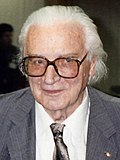 | Konrad Zuse (1910–1995) | Computer technology | Hünfeld | [43] |
| 1985 | | Hermann Flohn (1912–1997) | Climatology | Bonn | [15] |
| 1983 | | Wolf von Engelhardt (1910–2008) | Mineralogy | Tübingen | [15] |
| 1983 | | Erna Lesky (1911–1986) | History of Medicine | Innsbruck | [44] |
| 1980 | | Wilhelm Jost (1903–1988) | Physical Chemistry | Göttingen | [45] |
| 1980 | | Peter Friedrich Matzen (1909–1986) | Orthopaedics | Leipzig | [46] |
| 1977 | | Wolfgang Gentner (1906–1980) | Physics | Heidelberg | [47] |
| 1977 | | Arnold Graffi (1910–2006) | General Biology | Berlin | [48] |
| 1975 | 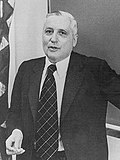 | Ilya Prigogine (1917–1988) | Physical Chemistry | Brussels/Austin | [49] |
| 1975 | | Ernst Ruska (1906–1996) | Physics | Berlin | [50] |
| 1974 |  | Viktor Ambartsumian (1908–1996) | Astronomy | Yerevan | [51] |
| 1973 | | Albrecht Unsöld (1905–1995) | Astronomy | Kiel | [52] |
| 1972 | | Erwin Reichenbach (1897–1973) | Stomatology | | [53] |
| 1971 | | Otto Kratky (1902–1995) | Physical Chemistry | Graz | [54] |
| 1971 | 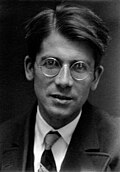 | Friedrich Hund (1896–1997) | Göttingen | Physics | [55] |
| 1969 |  | Pavel Alexandrov (1896–1982) | Mathematics | Moscow | [15] |
| 1969 |  | Helmut Hasse (1898–1979) | Mathematics | Hamburg | [56] |
| 1969 |  | Bartel Leendert van der Waerden (1903 - 1996) | Mathematics | Zürich | [15] |
| 1967 | | Vladimir Engelgardt (1894–1984) | Physiological Chemistry | Moscow | [15] |
| 1967 | | Karl Lohmann (1898–1978) | Physiological Chemistry | Berlin | [57] |
| 1966 |  | Archibald Vivian Hill (1886–1977) | Physiology | Cambridge (GB) | [58] |
| 1965 | | Hans Hermann Bennhold (1893–1976) | Internal Medicine | Tübingen | [59] |
| 1965 | | Ernst Derra (1901–1979) | Surgery | Düsseldorf | [15] |
| 1964 |  | Wolfgang von Buddenbrock-Hettersdorff (1884–1964) | Zoology | Mainz | [60] |
| 1961 |  | Max Bürger (1885–1966) | Internal Medicine | Leipzig | [61] |
| 1960 |  | Kurt Mothes [ de ] (1900–1983) | Botany | Halle | [62] |
| 1960 |  | John Eccles (1903–1997) | Physiology | Canberra | [63] |
| 1959 |  | George de Hevesy (1885–1966) | Physical Chemistry | Stockholm | [64] |
| 1959 |  | Pyotr Kapitsa (1894–1984) | Physics | Moscow | [65] |
|



























